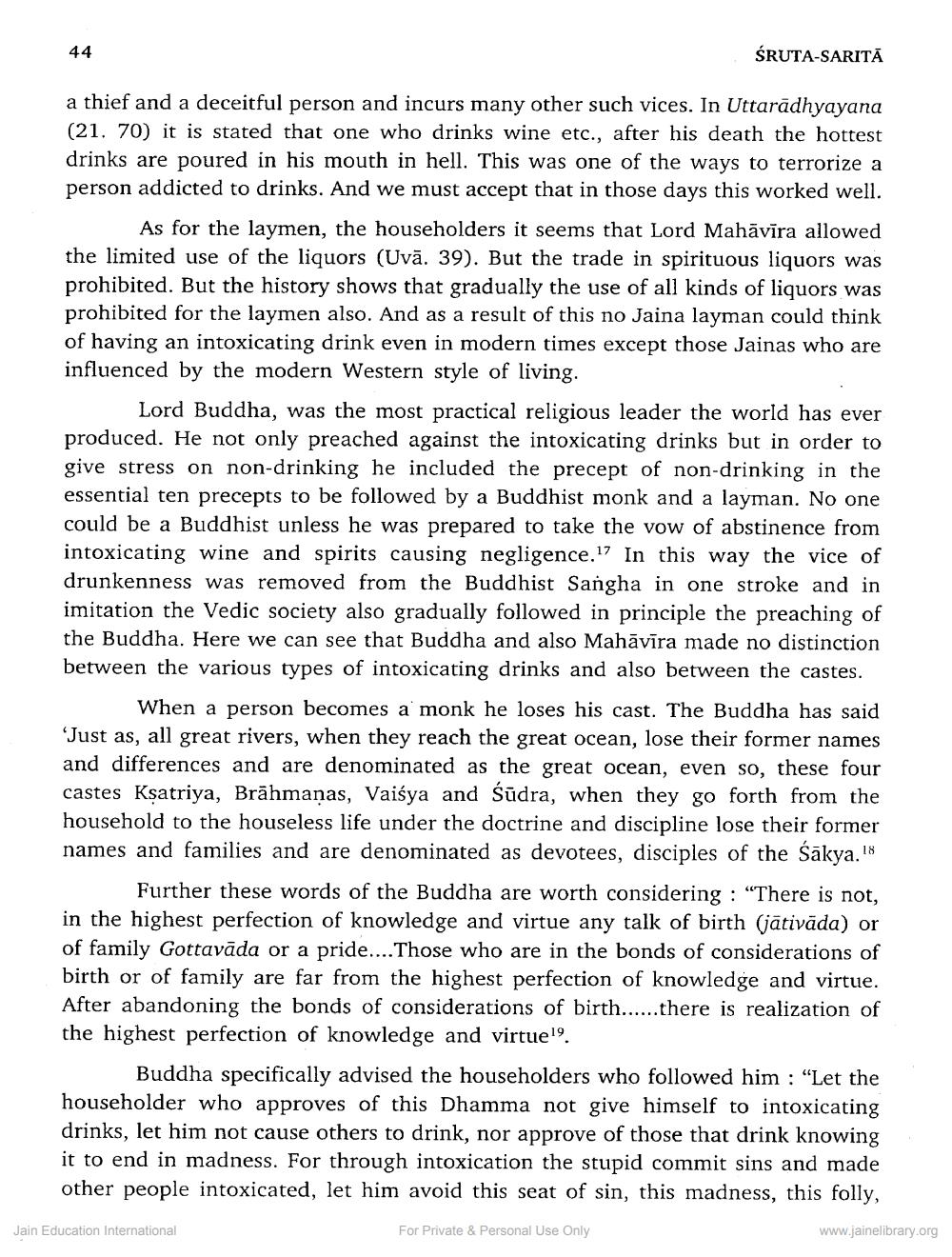________________
ŚRUTA-SARITĀ
a thief and a deceitful person and incurs many other such vices. In Uttaradhyayana (21. 70) it is stated that one who drinks wine etc., after his death the hottest drinks are poured in his mouth in hell. This was one of the ways to terrorize a person addicted to drinks. And we must accept that in those days this worked well.
44
As for the laymen, the householders it seems that Lord Mahāvīra allowed the limited use of the liquors (Uvä. 39). But the trade in spirituous liquors was prohibited. But the history shows that gradually the use of all kinds of liquors was prohibited for the laymen also. And as a result of this no Jaina layman could think of having an intoxicating drink even in modern times except those Jainas who are influenced by the modern Western style of living.
Lord Buddha, was the most practical religious leader the world has ever produced. He not only preached against the intoxicating drinks but in order to give stress on non-drinking he included the precept of non-drinking in the essential ten precepts to be followed by a Buddhist monk and a layman. No one could be a Buddhist unless he was prepared to take the vow of abstinence from intoxicating wine and spirits causing negligence." In this way the vice of drunkenness was removed from the Buddhist Sangha in one stroke and in imitation the Vedic society also gradually followed in principle the preaching of the Buddha. Here we can see that Buddha and also Mahävira made no distinction between the various types of intoxicating drinks and also between the castes.
When a person becomes a monk he loses his cast. The Buddha has said 'Just as, all great rivers, when they reach the great ocean, lose their former names and differences and are denominated as the great ocean, even so, these four castes Ksatriya, Brahmanas, Vaiśya and Śūdra, when they go forth from the household to the houseless life under the doctrine and discipline lose their former names and families and are denominated as devotees, disciples of the Sakya.""
Further these words of the Buddha are worth considering: "There is not, in the highest perfection of knowledge and virtue any talk of birth (jätivada) or of family Gottaväda or a pride....Those who are in the bonds of considerations of birth or of family are far from the highest perfection of knowledge and virtue. After abandoning the bonds of considerations of birth......there is realization of the highest perfection of knowledge and virtue1.
Buddha specifically advised the householders who followed him: "Let the householder who approves of this Dhamma not give himself to intoxicating drinks, let him not cause others to drink, nor approve of those that drink knowing it to end in madness. For through intoxication the stupid commit sins and made other people intoxicated, let him avoid this seat of sin, this madness, this folly,
For Private & Personal Use Only
www.jainelibrary.org
Jain Education International




